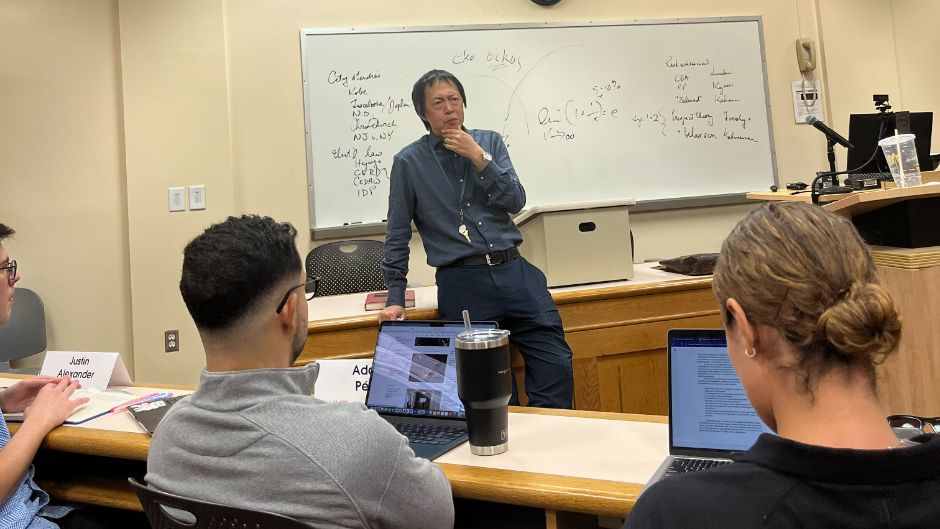Disaster law is an essential aspect of environmental protection. It provides a framework for preparing and responding to natural disasters like hurricanes, floods, fires, and earthquakes. It also helps to protect the environment during and after such events. Disaster law covers a wide range of issues, including emergency management, environmental risk assessment, and critical infrastructure protection.
The disaster law course is part of the Environmental Law Program's Visiting Scholars Program, a series of innovative short courses bringing in distinguished visitors, creative scholars, and cutting-edge researchers.
"Disaster law touches on so many legal questions. It isn't just about environmental law, but also real estate, insurance, business law, and administrative law," said Professor Jessica Owley, program director. "This short course helped pull together these different strands. As we increasingly face large-scale disasters (from hurricanes to pandemics), we must prepare our students to grapple with these complicated problems. We were lucky to be able to bring Jim Chen to campus. He literally wrote the book on the topic."
James Ming Chen, an attorney and professor of law with three decades of experience in the law of regulated industries, economics, and regulatory policy, recently taught a short course on disaster law at the University of Miami School of Law.
Chen holds the Justin Smith Morrill Chair in Law at Michigan State University College of Law and is of counsel to the Technology Law Group, a Washington, D.C.-based firm specializing in telecommunications law. He served as dean of the University of Louisville School of Law.
Chen joined earlier visiting scholars who were expanding on subjects of environmental concern.
Professor Melissa Powers, Lewis & Clark's Jeffrey Bain Faculty Scholar, directs the Green Energy Institute, which designs policies to transition to a zero-carbon energy system. She co-authored the books Climate Change and the Law and Principles of Environmental Law.
Powers addressed energy law in a series of lectures, "Energy Regulation in an Age of Transition," and delved into why analysts are increasingly endorsing an "electrify everything" approach to energy decarbonization and the legal challenges that this approach presents.
Daniel Magraw, a fellow at the Foreign Policy Institute at Johns Hopkins School of Advanced International Studies and president emeritus at the Center for International Environmental Law, has taught a section on climate change and human rights, focusing on the fast-moving area of international law.
Magraw has extensive experience in international law, institutions, processes, and policies, particularly concerning environmental protection and human rights, including working in government, non-governmental organizations, inter-governmental organizations, business, and academia.
Keith Hirokawa, an Albany Law School professor who teaches environmental and natural resources law, land use planning, property law, and jurisprudence courses, visited in spring 2022 to teach a course on natural resources.
Hirokawa's scholarship has explored convergences in ecology, ethics, economics, and law, with particular attention given to local environmental law, ecosystem services policy, watershed management, and environmental impact analysis.
Miami Law's Environmental Law Program is unique due to its South Florida location, enabling the focus on the prism of issues affecting the environment — from maritime to real estate to land use to the cruise industry to environmental law to law of the sea. The program also offers unique intersectionality with other University of Miami graduate programs in marine affairs, land use, architecture, and business. With a Concentration in Environmental Law and an Environmental Justice Clinic, the program trains students to become future attorneys, policymakers, and scholars in environmental law locally, nationally, and internationally.
"I was thrilled and honored to be invited to teach disaster law at the University of Miami," said Chen. "It's the perfect intellectual and physical environment for an in-depth examination of issues involving climate change, the human environment, and social justice. Miami law students brought their knowledge and passion to the class. It was a fantastic experience."
More on studying Environmental Law at Miami Law

